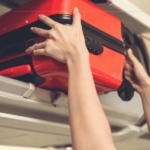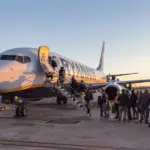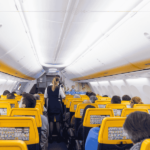Budget airlines are facing a revolutionary challenge to their pricing strategies, with Spanish authorities delivering a stunning blow to long-standing practices of charging for cabin baggage. The decision marks a potential turning point for air travel consumers across Europe.

The crackdown involves unprecedented fines totaling €179 million against major budget carriers. Airlines including Ryanair, Vueling, easyJet, Norwegian, and Volotea have been hit with substantial penalties for what authorities describe as consumer rights violations.
The financial breakdown reveals a significant intervention into airline pricing practices. Ryanair bears the brunt of the penalties with a €108 million fine, followed by Vueling at €39 million and easyJet at €29 million. Smaller carriers Norwegian and Volotea face smaller but still substantial fines of €1.6 million and €1.2 million respectively.
What This Means for Travelers
Passengers can now anticipate a dramatically different travel experience. The ruling eliminates additional charges for standard cabin baggage, promises more transparent pricing, and simplifies the booking process. Travelers will no longer face unexpected fees at check-in, and may even be eligible for refunds on previous charges.
This decision extends far beyond luggage fees. The Spanish Consumer Affairs Ministry has strategically targeted multiple controversial airline practices. These include unreasonable seat reservation fees, excessive charges for printing boarding passes, restrictions on cash payments, and a lack of pricing transparency that has long frustrated travelers.
Airlines are mounting a vigorous defense. Immediate responses include preparing legal appeals, claiming government overreach, and warning about potential disruptions to their business models. The industry argues that these pricing strategies allow them to offer lower base fares, giving consumers more choice.
Potential European-Wide Implications
While currently limited to Spanish airports, the decision could have far-reaching consequences. It may inspire similar actions in other European countries, prompt EU-wide discussions on airline pricing, and potentially reshape budget airline business models. Consumer protection standards could be dramatically transformed.
The ruling opens up potentially massive financial repercussions. Passengers now have a five-year window to claim refunds, which could result in compensation claims from millions of travelers. Airlines face substantial legal costs and may need to completely restructure their pricing strategies.
This landmark decision represents a critical moment in the ongoing battle between budget airlines and consumer rights. It signals a potential shift towards more transparent, fair pricing in the travel industry. Consumer organizations have overwhelmingly welcomed the move, arguing that basic travel services should not come with hidden additional costs.
The ruling challenges the fundamental business model of budget airlines, which have long relied on low base fares supplemented by numerous additional charges. While airlines argue that this approach allows them to offer more affordable tickets, consumer groups contend that these practices often mislead travelers, creating unexpected costs and financial stress.




